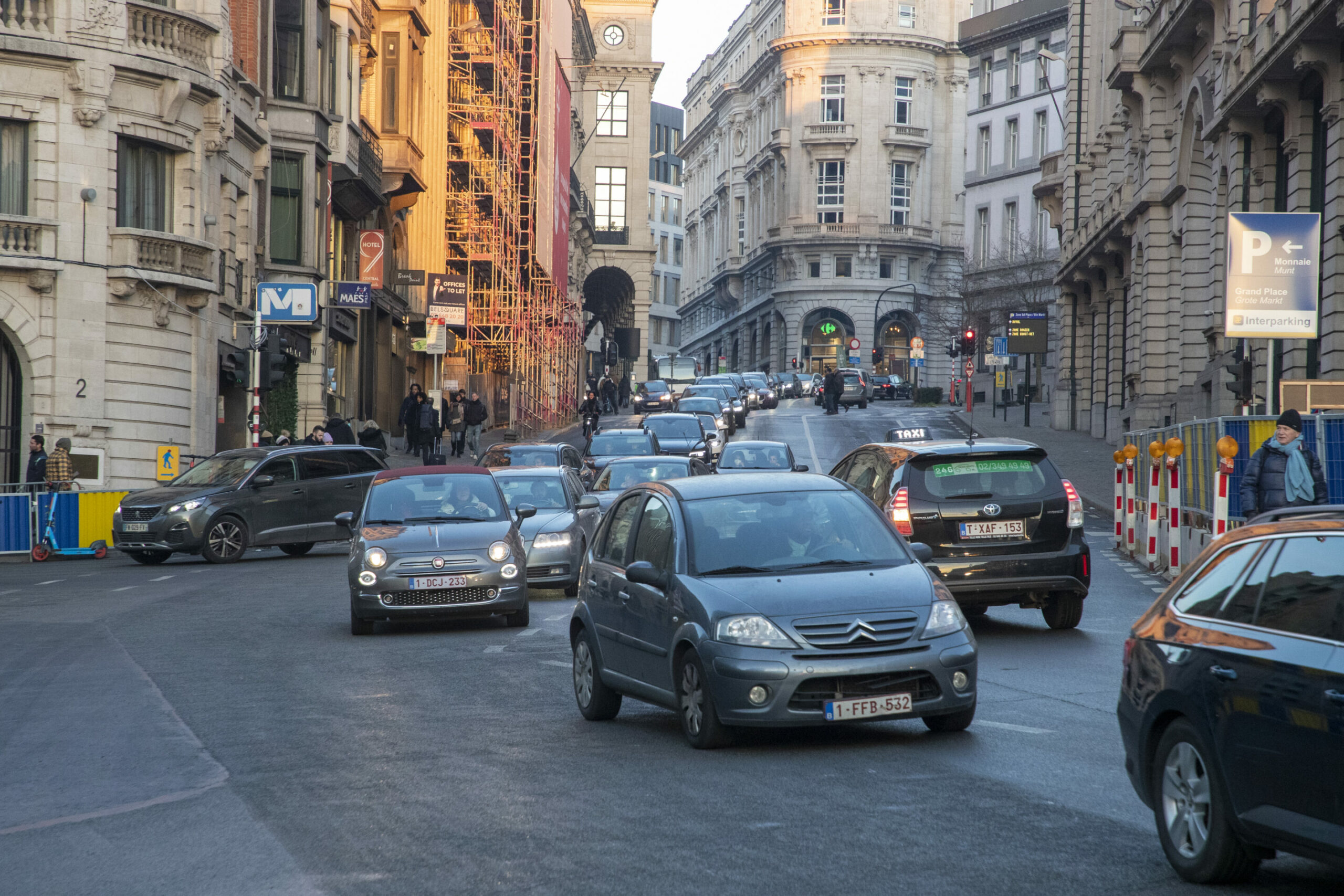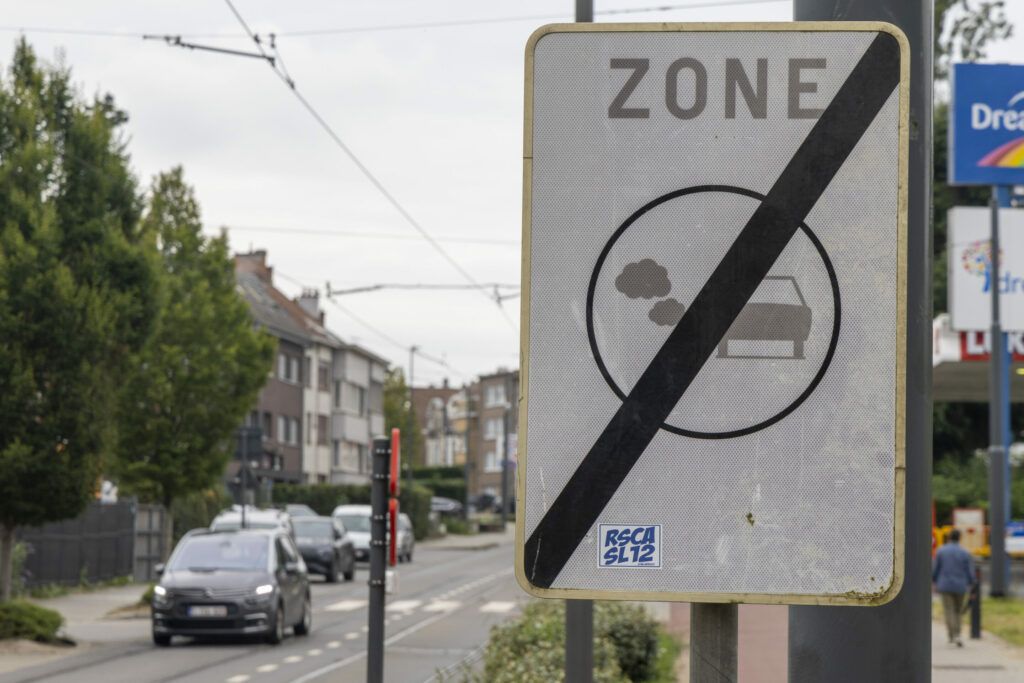Brussels' Low Emission Zone (LEZ) was designed to reduce harmful pollutants and become progressively stricter until 2035. Several parties have proposed its postponement – but this could cause the region to pay tens of millions in fines.
All 19 Brussels municipalities have been covered by LEZs since 2018, restricting access to the most polluting vehicles in response to the major public health risk posed by road traffic emissions. This resulted in a significant drop in air pollution. The next step in the tightening process was confirmed to be in 2025, banning Euro 5 diesel and Euro 2 petrol cars, expected to impact some 600,000 passenger cars and 150,000 vans registered in Belgium.
However, Flanders and Wallonia both decided to delay this step, spurring calls, initially from the French-speaking socialists PS, to do the same in Brussels, citing social arguments such as "not everyone can afford to buy a less polluting car".
Following the 9 June elections, MR, Les Engagés, PS and Open VLD, without consultation, proposed that the next phase should not take place until 2027 – continuing the debate over pushing the deadline back. Team Fouad Ahidar, the Belgian Workers Party (PTB-PVDA) and Vooruit.brussels also put forward proposals, making the LEZ a make-or-break issue for the negotiations. The fallout led to outgoing Mobility Minister Elke Van den Brandt (Groen) resigning as lead negotiator on the Dutch-speaking side.
Hefty fine
Aside from causing political friction, and the argument from NGOs that a delay is a missed opportunity to improve the health of Brussels' residents, a memo from Brussels Environment, seen by Bruzz, has highlighted that the postponement also has economic repercussions. If Brussels delays the tightening of the Low-Emission Zone by two years, the region risks having to pay a substantial fine to the EU.

Cars in Brussels. Credit: Belga/Nicolas Maeterlinck
At the request of outgoing Brussels Environment Minister Alain Maron (Ecolo), the administration calculated that the region would emit an extra 188.1 kilotonnes of CO₂ by 2030 if the current LEZ schedule were not maintained. This equates to a drop of 43%, falling short of the European Commission's targets of reducing greenhouse gas emissions by 47% by 2030. "According to the modalities of burden sharing 2030, such an overshoot could cost the Region a fine of €19 million (...)," the memo read.
The looming prospect of this fine comes as the incoming government is scrambling to shave its budget down by €28 billion over the next four to seven years, after being called out by EU regulators for excessive overspending and public debt.
When it comes to nitrogen dioxide (NO2) concentrations, one of the pollutants with the highest documented impact on human health, a two-year postponement means that by 2030, health standards will be surpassed on 135 additional kilometres of Brussels' road network (8% of all streets). Recent local air quality measures show that the region still has a long way to go to reduce these emissions.
The proposals to postpone the planned LEZ tightening are being discussed today in the Brussels Parliament's Environment Committee on Wednesday, despite this being a government competence.

